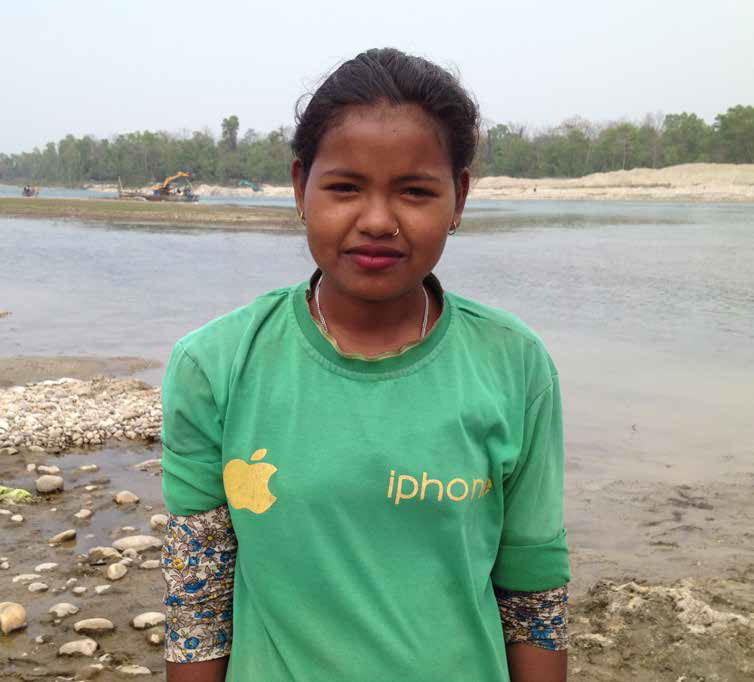Jyoti Sonaha, Daulatpur, Kailali
Pushing Back from the Margins
March 2, 2019
When I was a child, we were free to go anywhere we wanted. I remember heading into Bardiya National Park with my parents to pan for gold on the banks of the river, or to catch fish to eat, or whatever else we needed to survive. Everything was ours, to use as we saw fit—we wanted for nothing.
Those days are long gone now. We have been rendered outsiders, aliens in our own home, our movements and activities consistently controlled. There are restrictions here, restrictions there, restrictions everywhere.
We, the people of the Sonaha community, do not own land as such, which means farming is out of the question. Our lives and livelihoods have always revolved around mining gold and fishing—it’s what our forefathers did. It’s what most of us still do.
Many people assume we are Tharus, and there are certainly some similarities on the surface. But we are ultimately a distinct ethnic group, with our own language and culture. And Tharus and Sonahas are poles apart when it comes to the nature of our livelihoods. Most Tharus rely on subsistence farming as their traditional occupation, while we have only ever depended on the Karnali. This is how it’s been for generations, this water and these banks are our means of survival.
But now the authorities want us to change our way of life. They demand that we stop using the river, the national park, the community forests and the land. This push began many years ago, in 1988, when our right to enter Bardiya National Park was taken away. The authorities began harassing our people, confiscating our goods, and frequently arresting us for going into the park. And it didn’t stop there. Eventually, we were prevented from entering even the buffer zone area.
Things only got worse with time, as divisions appeared within the community itself. Those families that had managed to acquire and register land on the banks of the Karnali began to turn against the rest of us, joining in the effort to stop us from panning gold. From 2015 onwards, it’s become even more difficult—we are now barred from even those areas that do not fall within the boundaries of the national park.
What alternatives have we been given? How will we survive? What will happen to our way of life? These questions torment us every day.
The administration has failed to acknowledge a simple fact: our survival is directly linked to the river, and our rights to it have been granted to us by birth. By denying us access to the river and the forests, the government is violating its own national and international commitments to ensure the rights of indigenous people over their ancestral lands and resources. The United Nations, civil society and other development partners must exert pressure on the government to uphold the promises it has made in being a signatory to various treaties on the rights of indigenous communities like the Sonahas.
While protection of forests and natural resources is undoubtedly important, and we appreciate the government’s diligence in this regard, conservation should not be pursued at the expense of the survival of an entire people. Many of our people are uneducated, and raising a collective voice against this violation of our rights is challenging. Development partners should therefore work with us and support us in reclaiming our birthright.
Many Sonahas have already forsaken hope; they are working as laborers or farm hands to feed their families. But despite the mounting adversities, most of us have still retained our traditional ways, and have refused to bow down to the threats and abuse meted out by security agencies.
I am determined to keep fighting. If, however, the government is willing to hear us out, understand our concerns and provide us with alternative work opportunities, we are open to talk. But these need to be viable options. If we are expected to switch to farming, for instance, we need to be provided land.

 Locations
Locations




